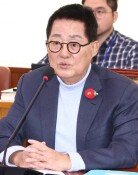U.S. Forces in S. Korea are not a subject of negotiation
U.S. Forces in S. Korea are not a subject of negotiation
Posted June. 06, 2018 07:39,
Updated June. 06, 2018 07:39
U.S. Secretary of Defense James Mattis dismissed rumors about a possible drawdown or withdrawal of American troops from South Korea on Sunday, saying, “We’re not going anywhere. It’s not even a subject of the discussions.” “Obviously, they are there because of security conditions 10 years ago, five years ago, this year,” he added, stressing that the issue should be discussed between Washington and Seoul, not with Pyongyang. “If five years from now, 10 years from now, it could be up for review, that would be between a democracy called the Republic of Korea and a democracy called the United States of America.”
Controversies over the U.S. forces in South Korea have grown after President Trump gave a vague answer to a reporter’s question last Friday following the meeting with Kim Yong Chol, vice-chairman of North Korea’s Central Committee of Workers’ Party. When asked whether Kim asked him “anything about troop levels in South Korea,” Trump said, “We talked about almost everything.” The comment further stoked suspicions of a secret deal between the two countries as Trump has continuously demanded that South Korea increase its share of the defense financing, even mentioning a possibility that American forces can be withdrawn, while North Korea has called for the withdrawal of the U.S. forces along with the signing of a peace treaty. Thus, it may not be an ungrounded concern that the issue of American troops stationed in South Korea can be included in a “big deal” about denuclearization and security guarantee.
Yet, Seoul and Washington have consistently maintained their stance that the issue cannot be a subject on the negotiating table between North Korea and the United States. U.S. forces in South Korea have served as a central axis in the South Korea-U.S. alliance against the North’s threats as well as a balance of power for peace and stability in Northeast Asia. Pyongyang had also acknowledged the necessity of keeping the U.S. troops to secure peace on the peninsula in disclosed inter-Korean negotiations in the past. In addition, South Korea holds strategic significance for Washington as shown by the fact that the U.S. House Committee on Armed Services recently passed an amendment bill that maintains the number of U.S. service members in South Korea at a minimum of 22,000.
The status of the alliance including the role of U.S. forces on the Korean Peninsula may be subject to change once North Korea’s nuclear issue is resolved and a peace regime is finally established. In fact, changes will be inevitable as a security landscape in Northeast Asia will be completely transformed, should it happen. However, as the end of the Cold War did not bring about the dismantlement of the North Atlantic Treaty Organization (NATO), the signing of a peace treaty will not necessarily serve as a reason to break the alliance. We can never be too concerned about security, but it should not lead to futile controversies or the sense of insecurity.
klimt@donga.com







